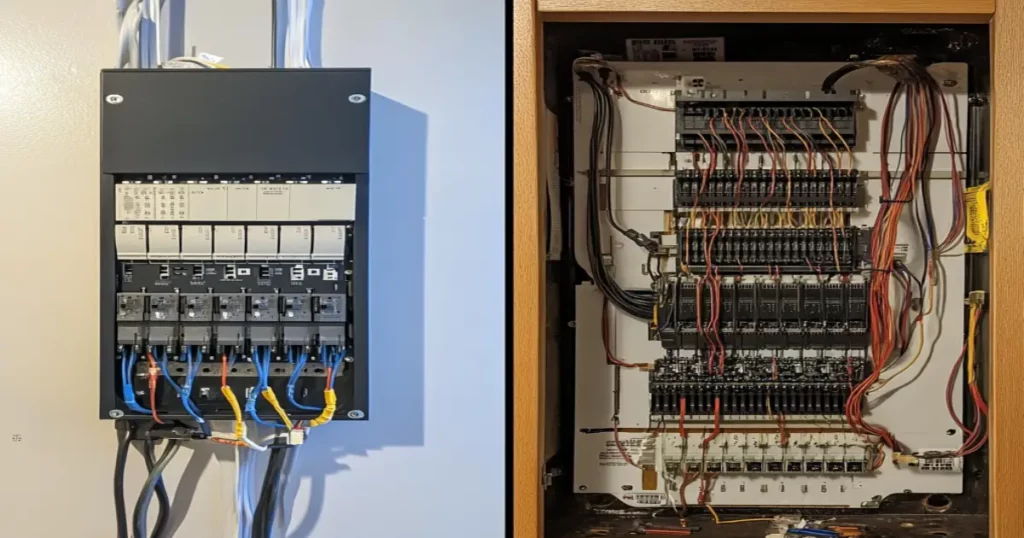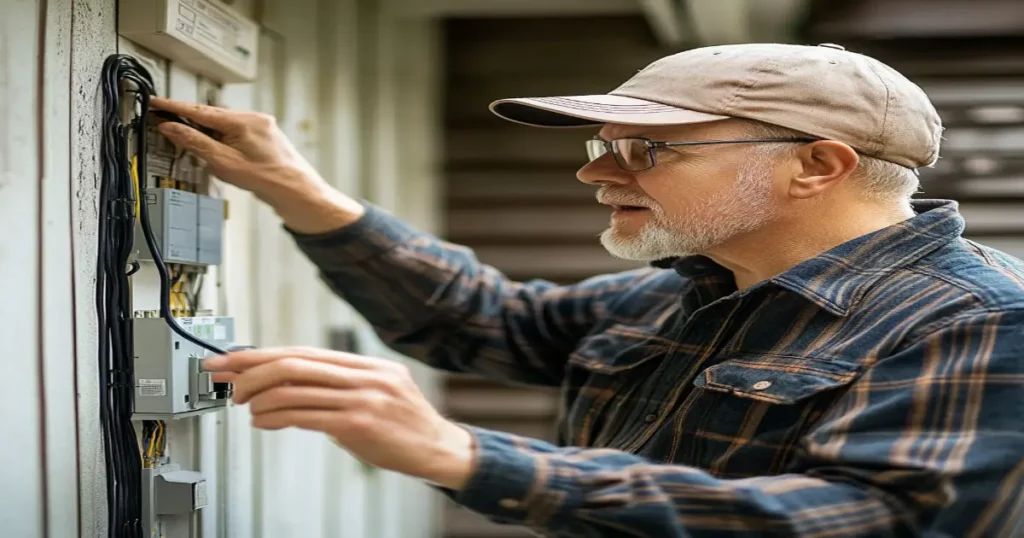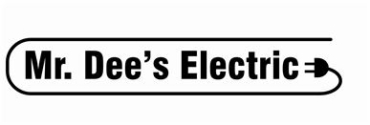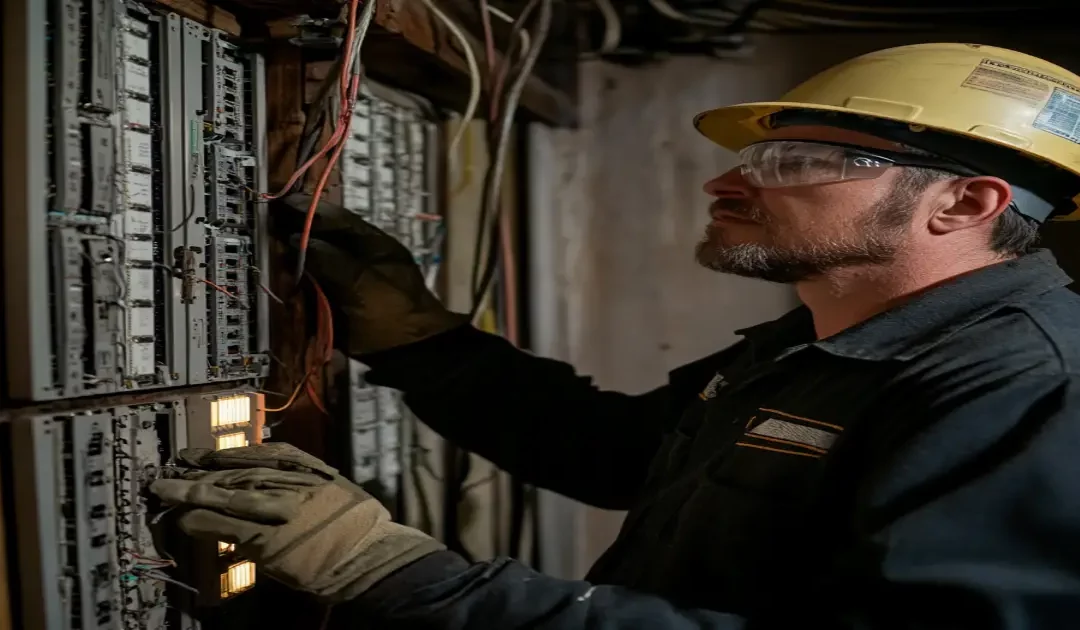Introduction
Your home’s electrical panel isn’t just another box tucked away in the basement; it’s the central hub that distributes electricity to every circuit in your house. A modern, well-maintained panel helps ensure that every appliance, outlet, and light operates safely and efficiently. On the flip side, an outdated or overloaded panel can lead to frequent disruptions, skyrocketing utility costs, and, worst of all, fire hazards. Understanding when it’s time for an upgrade can make all the difference in maintaining a safe, energy-efficient home.

Breaker Trips
If your breakers seem to trip every time you switch on a high-powered device or even during normal household usage—you’re likely dealing with an overloaded panel or older wiring that can’t handle your current energy demands. These repeated interruptions do more than just disrupt your day; they also signal potential overheating issues within the panel itself. Addressing the underlying cause sooner rather than later can prevent costly damage and ensure your home operates more smoothly.
Dimming or Flickering Lights
Running a microwave or turning on an air conditioner shouldn’t cause the lights to fade. If you’ve noticed your home’s lighting fluctuates whenever appliances crank up, it’s a sign your panel is struggling to distribute power evenly. While an occasional flicker might not mean much, persistent dimming during routine appliance use is a clear indicator that the panel is at or near capacity. One of the earliest signals that you should consider an upgrade.
For a closer look at specialized outlet types that may reduce strain, see our guide on what a NEMA 14-50 outlet is.
Burning Smells or Scorch Marks
A burning odor near your electrical panel or any signs of discoloration or scorching around the breakers is a serious red flag. These symptoms often point to overheating, sparking, or both, any of which could escalate into an electrical fire if left unchecked. If you detect a suspicious odor or see physical damage, call a licensed electrician right away for an inspection. Quick action could save you from far more extensive and expensive—troubles down the road.
Outdated Fuse-Based Panels
Decades ago, fuse-based panels were the norm, using disposable fuses that burn out when overloaded. Modern systems, on the other hand, use circuit breakers designed to trip and reset without needing a replacement fuse each time. While fuses can still protect your circuits, they’re generally considered less safe and more cumbersome. A fuse can be replaced with a higher-rated one potentially overloading the wiring and increasing the risk of overheating or electrical fires. By contrast, modern breaker systems are designed to trip automatically, providing more reliable protection and greater convenience.
Rust or Corrosion
Rust and corrosion on or around your electrical panel typically indicate moisture has made its way inside. That kind of exposure can degrade the metal components responsible for distributing power, leading to unstable connections and potential short circuits. In addition to creating a fire hazard, corroded parts can make your panel less efficient over time. When you spot rust or corrosion, it’s a clear sign the system’s integrity is compromised, and a replacement or significant repair is almost always the safest move.
Insufficient Power Supply
Today’s homes rely on far more power than they did even a few decades ago. Features like central air conditioning, high-capacity washers and dryers, and electric vehicle charging stations often require panels capable of handling 200 amps or more. If your current system is rated for 100 amps or even less and you’re routinely tripping breakers or noticing performance issues when multiple devices are running, that’s a strong indication your panel can’t meet your household’s energy needs. Upgrading to a higher-amperage panel ensures you have enough juice to keep everything running without straining the system.

Panel Age: 25 Years or Older
Electrical panels generally have a lifespan of 25 to 40 years. If yours is inching past the 25-year mark, it could be lacking modern safety features or simply no longer be up to the rigors of modern electricity use. Aging panels are more prone to wiring faults, breaker malfunctions, and other problems that can compromise safety and efficiency. As a general rule, if your panel is approaching (or has surpassed) its silver anniversary, it’s wise to schedule an inspection and weigh the benefits of an upgrade.
Unusual Noises
Crackling, sizzling, and popping sounds coming from your electrical panel aren’t just background noise. They’re often telltale signs of loose wires, damaged breakers, or faulty connections. Ignoring these disturbances can lead to overheating and potential fire hazards, so if you hear these sounds, contact a licensed electrician promptly for an inspection.
Home Renovations or Additions
Whether you’re adding a new room, upgrading kitchen appliances, or installing an electric vehicle charger, these additions place extra demand on your electrical system. If your current panel isn’t rated to handle the increased load, you may experience regular breaker trips or flickering lights. By matching your panel’s capacity to your home’s evolving power requirements, you’ll enjoy greater reliability and avoid premature wear on your electrical components.
High Energy Bills
An outdated or underperforming electrical panel can sap energy efficiency, driving up your monthly power costs. Worn parts, poor connections, and other inefficiencies all contribute to higher bills. Investing in a modern panel upgrade helps ensure electricity is distributed optimally throughout your home, often resulting in noticeable long-term savings.
Why Choose Mr. Dee’s Electric Service?
When it comes to electrical panel upgrades, professional expertise is critical. Mr. Dee’s Electric Service employs licensed electricians who adhere to local codes and industry best practices. They start with a thorough inspection to determine whether a full upgrade is necessary, then perform safe installations tailored to your home’s unique power needs. Whether you’re prepping for future renovations or simply want a more reliable system, Mr. Dee’s Electric Service provides you with guidance to ensure your panel can handle whatever comes next.
Conclusion
Upgrading your home’s electrical panel is a key step to maintaining safety, efficiency, and peace of mind. If you’ve noticed any of the warning signs—like unusual noises, frequent breaker trips, or high energy bills—schedule an inspection today. Contact Mr. Dee’s Electric Service to discuss your options and find the ideal panel upgrade solution for your home. A simple phone call could be all it takes to prevent bigger, costlier issues down the road.

